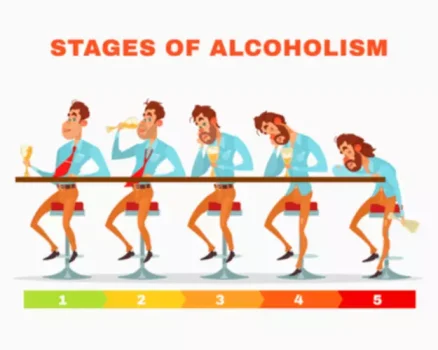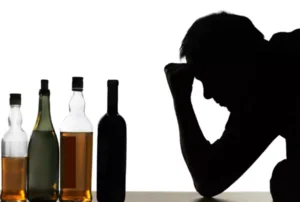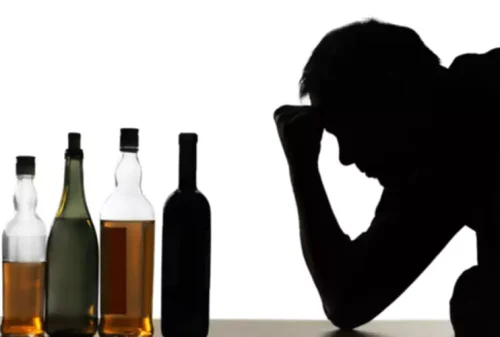
Gastrointestinal symptoms like nausea, vomiting, and diarrhea can contribute to a higher-risk detoxification process by making it difficult for the person to consume food or water. These symptoms greatly increase the risk of dehydration, but they can be managed in detox settings with advanced medical intervention if a client’s vital signs become unstable. Fortunately, these symptoms are temporary and, if they become overly severe, can be managed using comfort medications like mild benzodiazepines including diazepam, chlordiazepoxide, lorazepam, or oxazepam, or other tranquilizing agents. Many different forms of withdrawal can produce agitation, but it is generally most pronounced when someone is withdrawing from a depressant drug like alcohol or benzodiazepines, or from opioids, which have depressant effects.
- For over 20 years Dr. Umhau was a senior clinical investigator at the National Institute on Alcohol Abuse and Alcoholism of the National Institutes of Health (NIH).
- Suddenly, your CNS doesn’t have to pull back against alcohol to keep activity at a proper level.
- This can cause seizures and delirium tremens, a severe form of withdrawal marked by tremors and hallucinations.
- Those experiencing mild alcohol withdrawal symptoms or who are concerned about experiencing withdrawal symptoms will benefit from the advice of a physician or clinician trained to assess and treat patients in alcohol withdrawal.
- This is sometimes referred to as protracted or post-acute alcohol withdrawal (PAW), though it’s not recognized in DSM-5.
- Alcohol withdrawal syndrome is defined by primary or secondary hospital diagnosis codes.
Quality Care
- For most people, alcohol withdrawal symptoms will begin sometime in the first eight hours after their final drink.
- The syndrome typically presents as mild anxiety and gastrointestinal discomfort and can progress to severe manifestations, such as alcohol withdrawal delirium, which poses significant diagnostic and management challenges.
- Individuals should be prepared to be uncomfortable during this period and have medical help available if needed.
- These symptoms aren’t life-threatening, but they can be very uncomfortable.
- Blood tests and imaging tests can show if organs, such as the liver, have been affected by a person’s intake of alcohol.
These symptoms aren’t life-threatening, but they can be very uncomfortable. You’ll likely notice improvements in how you communicate—without alcohol affecting your mood or judgment, you can listen better, express yourself more clearly, and handle cure for alcohol withdrawal symptoms conflicts in a healthier way. Even after years of heavy alcohol use, the liver has a remarkable regenerative capacity1 and, following alcohol removal, can recover a significant portion of its original mass and function. A relative or friend must stay with you to monitor your condition. Their job is to make sure that if you develop any worsening of symptoms, they get you to a hospital or call 911 immediately. It’s important to note that the Clinical Assessment mentioned above may be unreliable because it is subjective in nature.
Explore Alcohol Treatment Centers
Once it begins to leave your body, early symptoms of withdrawal begin. When you are detoxing from alcohol at a rehab center, nurses and doctors monitor vital signs, provide adequate nourishment and treat complications if they occur. If you’re used to drinking less than 20 beers per day, HAMS recommends reducing your alcohol consumption by two beers per day until you achieve sobriety. Take our free, 5-minute alcohol misuse self-assessment below if you think you or someone you love might be struggling with an alcohol use disorder (AUD). The evaluation consists of 11 yes or no questions that are intended to be used as an informational tool to assess the severity and probability of an AUD. The test is free, confidential, and no personal information is needed to receive the result.
Can I prevent marijuana withdrawal?
- Detox doesn’t treat addiction, which is a disease characterized by compulsive behaviors, such as chronic alcohol use.
- In in-patient settings where intense monitoring is not possible due to lack of trained staff, a fixed dose regimen is preferred.
- This results in the requirement of increasingly larger doses of ethanol to achieve the same euphoric effect, a phenomenon known as tolerance.
- They can help you understand your risks and guide you on what to do about them.
Some may also experience hyperthermia, a dangerous increase in body temperature usually paired with intense seizures. However, for people who have become dependent on a drug of abuse like opioid painkillers, methamphetamine, cocaine, alcohol, benzodiazepines, cannabis, and others, withdrawal is more than just an uncomfortable experience. It can also be a dangerous hurdle standing between them and the rest of their recovery journey. We believe everyone deserves access to accurate, unbiased information about mental health and addiction. That’s why we have a comprehensive set of treatment providers and don’t charge for inclusion.
You may also receive other medications or treatments for related health issues, like IV fluids for dehydration and electrolyte imbalances or antinausea medicines if you experience vomiting. It’s important to be honest about your alcohol use — and any other substance use — so your provider can give you the best care. But certain symptoms can last up to three weeks or more in people who’d used marijuana very often. It’s increasingly common for someone to be diagnosed with a condition such as ADHD or autism as an adult. A diagnosis often brings relief, but it can also come with as many questions as answers.
Treatment / Management
Alcohol use disorder isn’t a condition that happens for just one reason. Family history, mental health conditions and many other factors can play a role. If you’re concerned about your risks for developing alcohol use disorder, it’s a good idea to talk to a healthcare provider. They can help you understand your risks and guide you on what to do about them.
Medical Detox for Alcohol Withdrawal

If you or someone you know shows signs of delirium tremens, go to the emergency room immediately. It’s important first to get evaluated by a medical professional and to reach out to a support system if you’re able. This could be family members, friends, members of your community, or people in sobriety support groups.

Design, Setting, and Participants This retrospective cohort study used electronic health records and insurance claims from Kaiser Permanente Washington (KPWA) between July 1, 2018, and June 30, 2022. These cravings and compulsions to leave detox and relapse may be overwhelming and extremely difficult in the moment. However, drug or alcohol tolerance begins to decrease during detox.

Likewise, medication-assisted treatment (MAT) options like methadone and buprenorphine can help people who are dependent on opioids to discontinue their opioid use in favor of these long-acting, abuse-resistant medications. Psychosis is a mental health problem characterized by intense mental confusion, distress, paranoia, delusions, and hallucinations, all amounting to a person losing touch with reality. A person’s mental and physical health are closely interconnected, with the body and mind each having a great deal of power over the other. So, when in the midst of withdrawal, it’s common for many people to experience a wide variety of mental health changes and challenges. Alcohol imbalances your brain chemistry,2 which can cause conditions like depression, anxiety, or irritability. When you stop drinking, your brain starts to recalibrate, making your moods more stable.
Patients presenting with alcohol withdrawal syndrome should receive thiamine and folate supplementation as they are often nutritionally deficient. To maintain homeostasis in the CNS, inhibitory signals from the GABAergic system are balanced by excitatory neurotransmitters such as glutamate. Alcohol, a CNS depressant, stimulates the GABAergic system and, in acute intoxication, causes a range of clinical manifestations such as disinhibition, euphoria, and sedation. At the same time, endogenous GABA is downregulated.3 Thus, when alcohol is withdrawn, a relative deficit of GABA may occur and simultaneous excess in glutamate, resulting in the excitatory symptoms seen in alcohol withdrawal syndrome.


